History of Sigma Chi
A Disagreement
In the fall of 1854 a disagreement arose within the Kappa chapter of Delta Kappa Epsilon (DKE) at Miami University in Oxford, Ohio. This chapter consisted of 12 men. Six of them, led by Whitelaw Reid, supported one of the members for Poet in the seven founders of sigma chithe Erodelphian Literary Society. Four of the other six members, James Parks Caldwell, Isaac M. Jordan, Benjamin Piatt Runkle and Franklin Howard Scobey, refused to vote for the brother because they knew him to lack poetic abilities. The man they did favor for that office was not a Deke. Thomas Cowan Bell and Daniel William Cooper were not members of Erodelphian, but their relation to the disagreement was unqualified endorsement of the four. Thus, they became six.
The chapter of 12 was evenly divided in a difference of opinion that ordinarily would have been decided one way or the other and immediately forgotten. But both sides considered it a matter of principle, and could not reach a compromise. During the ensuing months, the groups disagreed so much that their friendship grew distant.
A Schism at Dinner
Chapter meetings, or attempted chapter meetings, occurred for months with the breach constantly widening. In February 1855, at an Oxford restaurant, a dramatic dinner meeting between the dissenting groups set the stage for Sigma Chi’s founding. Bell, Caldwell, Cooper, Jordan, Runkle and Scobey hosted the event, hoping to mend ways with the other six. They were on hand early, awaiting developments with anticipation. Of the meeting, Founder Benjamin Piatt Runkle said, “With the kindest of intentions, we determined to give a dinner in their honor. I remember that the feast was prepared at the village restaurant, the guests invited, and on the appointed night we gathered and waited for the guests. They did not come for a long time, and then only Mr. Reid and with a stranger. He took into his confidence Minor Millikin (an alumnus of the fraternity from nearby Hamilton, Ohio) and the two decided on strenuous proceedings.”
Minor Milllikin Steps Up
Millikin lost no time. “My name is Minor Millikin,” he said. “I live in Hamilton. I am a man of few words.” He then passed judgment on all of the matters in dispute. Since he had heard only one side of the story, his verdict was against Runkle, Scobey and the others who had originally opposed election of the DKE as the Poet in the literary society. Millikin found them guilty.
Next, Millikin unfolded a plan he and Reid had concocted by which “justice” could be satisfied with the formal expulsion of the leaders in the rebellion (undoubtedly Runkle and Scobey), after which the others, having been properly chastised, could remain in the chapter.
At this dramatic moment Runkle stepped forward, pulled off his DKE pin, tossed it upon the table and said to Millikin, “I didn’t join this Fraternity to be anyone’s tool. And that, sir, is my answer!” Runkle stalked out of the room, and his five colleagues followed.
Six Against Six
A rather prolonged correspondence ensued with the Delta Kappa Epsilon parent chapter at Yale, resulting in the April 1855 expulsion of Bell, Caldwell, Cooper, Jordan, Runkle and Scobey. It was at this time they began making plans to found their own fraternity.
The Seven Founders
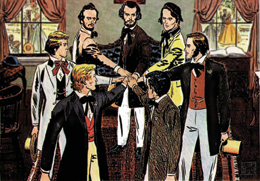 The seven young men who founded Sigma Chi were not ordinary men. They were men of vision, men of courage, men of action. They envisioned something new in fraternities.
The seven young men who founded Sigma Chi were not ordinary men. They were men of vision, men of courage, men of action. They envisioned something new in fraternities.
Prior to Sigma Chi’s birth, fraternities were based on the proposition that friendships are best formed by men of like minds, talents, and personalities. Our founders, however, believed that true brotherhood could prosper only when men of unlike minds, talents, and personalities banded themselves together under a common set of ideals. It was on this precept that Sigma Chi was begun.
Knowledge of the exemplary lives led by these men is a requisite to gaining an understanding of their ideals and the tremendous contribution they made to our Fraternity.
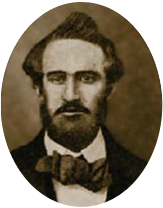
Thomas Cowan Bell
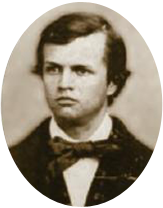
James Parks Caldwell
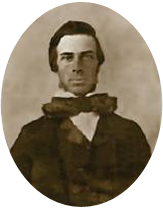
Daniel William Cooper
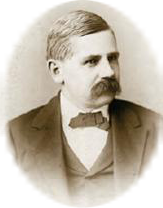
Isaac M. Jordan
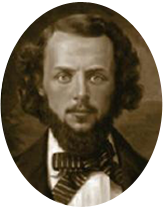
William Lewis Lockwood
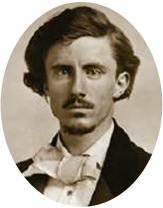
Benjamin Piatt Runkle
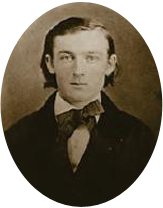
Franklin Howard Scobey